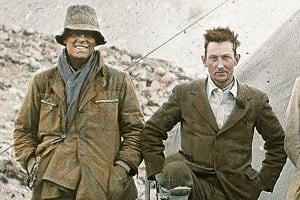
Two weeks ago the masses were informed about one of the greatest climbing pieces of art that we have ever heard about. Alex's free-solo of El Capitan – The 3000ft granite wall in Yosemite. I say 'art' because that is how I see it. I see 'art' as an act that provokes some kind of emotion so, in fact, we are probably producing art more than we actually think. A pianist smashing out some incredible symphony, a dancer executing incredible moves, a magician defying death, a piece of writing, a painting, that winning tennis shot at Wimbledon - all are an act and, if the viewer is interested, they will provoke some kind of emotion, producing art.
I think the most powerful pieces of art leave the viewer struggling to describe how they actually feel about it. They know they are feeling something but their emotions are surpassing any rational thoughts and they then can't find words to describe it. From what I have read already about the achievement, this is exactly what has happened with Alex's ascent. In written pieces from climbers, journalists and reporters no-one can wrap their heads around it and are unable to describe it in a methodical way. Even when some art tickles my emotions, I'm not the type of person who gets overwhelmed by it. I'm more the type of person who goes, 'now how the f**k have they done that…?' Like the way Ondra can seamlessly link hard moves together into one continuous sequence, or the way Kevin Jorgeson pulled it together on pitch 15 of the Dawn Wall, how a painter has used three brush strokes to produce something ridiculously realistic. I'll examine it intricately until I've figured it out. Whether the answer is right or wrong is not so necessary, it's just the process of rationalising it in my head.
We all know how outrageously impressive this feat of climbing was, and that is already well documented through articles and comments on social media, so when I was asked to write this article, I thought I needed a different slant on it. People rationalise what Alex did, since it is mind boggling. However, I thought it would be a good challenge (I like a challenge) to try and wrap my head around the achievement for you. Like said above, whether it's right or wrong is not so necessary, it's more the act of trying to rationalise the irrational.
Alex might read this and think what a load of crap, complete nonsense. But this is how I examined the achievement and worked it out. I've rope-soloed Freerider, free-soloed sections of El Cap but would never contemplate free-soloing the whole lot, so only Alex will have the true answer!
First of all, to push standards, especially on this level, you've got to 'want it' and want it badly. That means eat, sleep and live this goal. All climbers pushing standards and breaking new boundaries want it (for what reason is different in everybody). Sometimes you can physically see that 'want'; look at Ondra's personality on the rock for example! And sometimes you can't see it as much, look at Alex's personality. But I'm quite sure both want it as badly as each other in their chosen discipline. If you look at an elite in anything they will have this trait.
When you want something badly enough, the only way to settle it, is to complete it. I can't help but think this is how it started with Alex, the feeling probably grew and the only way to settle that feeling was to complete the goal. Game on!
When it is game on, but that 'game' is too overwhelming, how do you go about it?
You break the end goal into manageable sections, work out what aspects you need to complete it and (for the moment) neglect the end goal. This is not something new if you think about it - we do this all the time when redpointing and even onsighting.
So, what do you need to complete a free-solo of El Cap?
Climbing ability – To even have a shot at this your ability has to be up to scratch. There is no point in putting together a routine if you can't do the moves.
Alex's climbing ability completely surpasses the standard of the route. He is fitter, stronger and more technically able than any section of climbing on there. In fact, there are many climbers who are stronger than the route. For all those UKC'ers who love a good E grade, the cruxes of the free-solo are two very delicate E4/E5 6a pitches, one tensiony pitch of E7 6c and a long pumpy pitch of E7 6b. They are certainly hard, but in terms of climbing standards, not close to current limits.
Dedication and practice – Any elite athlete performing a routine is after absolute perfection. Anything less is not good enough - if it's not right, no matter how close to right it might be, it is wrong. I can't imagine Alex was wanting anything less either, he wanted absolute perfection before setting off and he worked his socks off to get that.
In November last year, I bumped into him at the bottom of El Cap and I heard him saying, "yep, it's been a good day. Twelve consecutive laps of the Boulder Problem (technical crux) and six consecutive laps of the Enduro Corners (pumpy crux) without falling." He was certainly putting the time and effort needed into the route and mastering perfection.
Mind Control – This is the biggest factor that explains why this feat has never been done before. You need to have the correct mind control. No one has quite been able to understand how Alex can control his mind and certainly no other climber has been able to do it quite like him, which is what makes him so unique and able to achieve what he has.
I'm certainly no expert on the mind, but this is what I have learnt from doing thousands of feet of soloing myself, which may have some crossover to Alex's mind, or it may not at all, who knows!
The important part when doing a lot of soloing in one day, is to have an engaged mind on the hardest parts of the route and have a relaxed mind on the easy parts. Both states of mind will produce calm climbing. If you were engaged all the time on long solo periods, your brain would probably melt, as it is hard to stay in an engaged state for a long time - you'd over-grip, get pumped, fall off and die. If you were relaxed all the time, you'd get to a crux, lose concentration, make an error, fall off and die. The important part is being able to get into these states of mind and use the correct one at the correct time. I suspect Alex would have had to be totally engaged for around five pitches, and then a few odd moves here and there, and then be relaxed for the rest of the route.
So how do you even get to these states? How do they feel?
A relaxed mind is definitely easier to get into and can be achieved by doing a lot of solo climbing within your comfort zone. With a relaxed mind, you get to the point where you're probably thinking about other things when you're climbing; what you're going to have for dinner, where to go climbing at the weekend, sex with your girlfriend - normal daily thoughts that might pass through your mind. It is a very similar feeling to that of driving a car and you get to your destination, not actually remembering much of the journey at all. You're putting your body into autopilot and letting it do what it does best - climb! I suspect many people have reached this state, after a period of sustained soloing practice within their comfort zone.
An engaged state of mind is much harder to achieve, as you have to start pushing your soloing to discomforting levels (i.e. more challenging climbing for your standard) to be able to practice getting to that place. If you're in discomfort on the rock, it's then hard to focus on getting into the correct state of mind and consequently you have limited practice time. It is kind of a contradictory cycle. I actually don't think many people will have ever been able to reach this (I personally feel like I've only reached it a few times). The feeling can't be related to everyday activities. But I'll do my best in a few short sentences to describe the feelings I've had (I'm sure there are probably more):
- Total focus on the current situation, the holds in front of you and the next few holds coming up.
- Complete neglection of peripheral vision.
- Zero mind wandering.
- No recollection of pump or fatigue, only noticing it when you've finished.
Alex seems to have not only mastered these two states of mind, but also have the incredible ability to flick between the two as and when it's needed, so that he can stay calm throughout the whole climb. The free-solo of El Cap was the combination of physical climbing ability, dedication and practice, and mind control. To include all these factors into one act shows that it was one of the greatest pieces of climbing seen by our generation. A true work of art.
If I ever spoke of Alex to friends, I used to refer to him as The Honnwad (Wad = beast/strong/good/etc), however with the way he has managed to master his mind like no other climber has done yet, I've decided I'm now going to refer to him as The Honnlord. Nice one Alex, what an incredible achievement and I'm inspired to see you reach one of your life goals, you can feel content now.

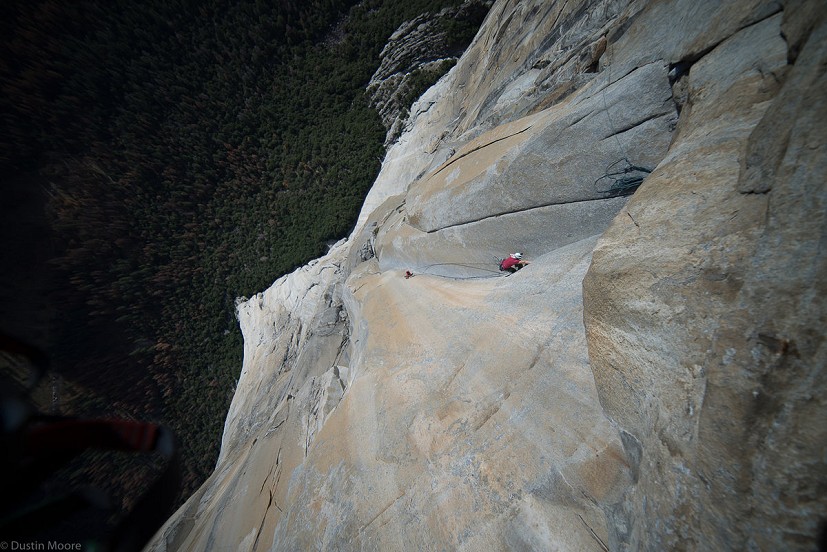

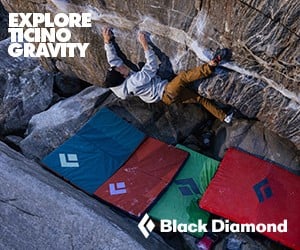
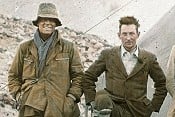


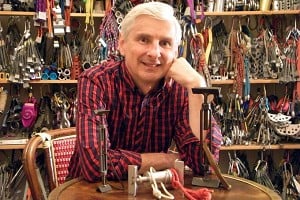





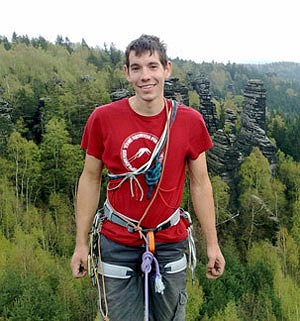
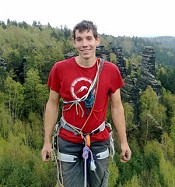
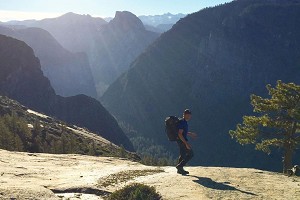
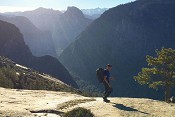


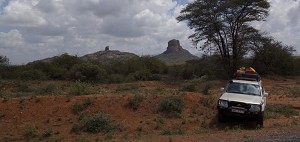

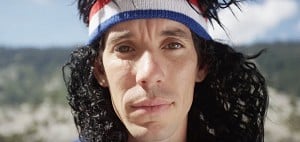

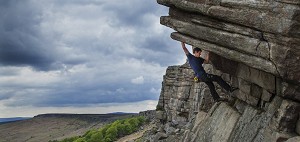

Comments